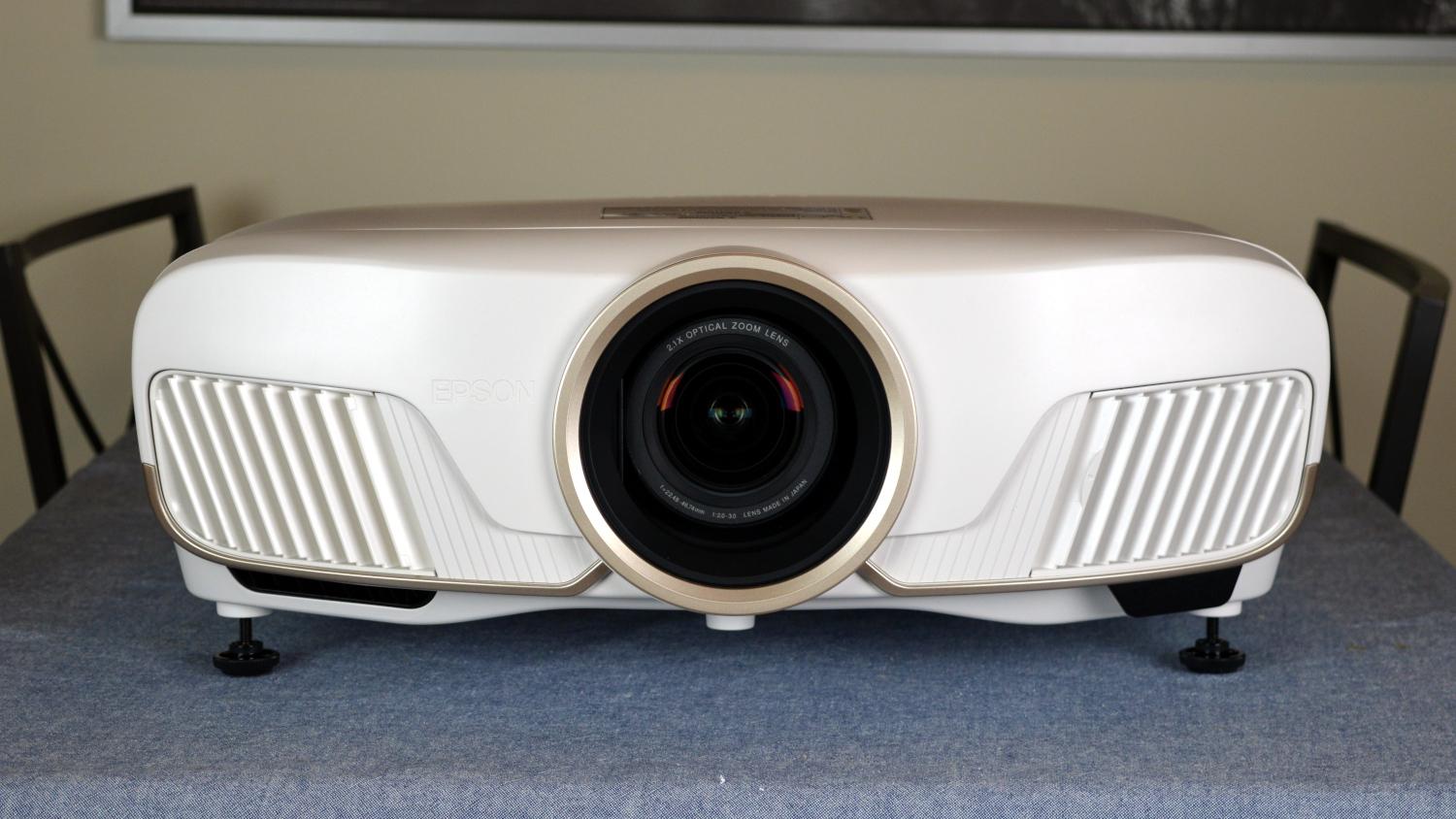TechRadar Verdict
The Epson Home Cinema 5050UB is a high-quality, great-performing home cinema projector that's built like a beast and while it’s not perfect, it comes pretty close.
Pros
- +
Very bright image
- +
Excellent colors
- +
Great HDR performance
- +
Relatively quiet
Cons
- -
Relatively expensive
- -
Massive size
- -
Faux-4K
Why you can trust TechRadar
Over the past few years, companies like Epson have been working hard to bring the types of innovations we’ve gotten in the TV world, to projectors. That said, while it’s easy to find a TV with a 4K resolution and support for HDR, finding a projector with similar specs can be hard to come by. There are good reasons for this, to be sure, but the fact remains - if you’re building a home cinema and want a 4K resolution, you’re looking at shelling out a ton of cash.
Epson, however, is trying to change that with the company’s Pro-UHD technology, which can be found in the new Epson Home Cinema 5050UB and Home Cinema 5050UBe (a similar product to the Epson EH-TW9400 and EH-TW9400W that came out in the UK and Europe at the tail-end of 2018, though not an exact match). Neither are quite true 4K - Epson's Pro-UHD projectors work by essentially splitting 4K images in two and projecting them alternately side-by-side to show what appears to be 4K - but, in practice, it’s close.
Unfortunately, the result of the tech is a relatively high price tag, at least for the uninitiated in the home theater world: The Home Cinema 5050UB comes in at $2,999 (around £2,300, AU$4,200), while the 5050UBe steps things up to $3,299 (around £2,500, AU$4,600).
Are these projectors worth their hefty upfront investment? Yes and no.
Design
First off, let it be known that the Epson Home Cinema 5050UB is a premium device, and it looks the part - it’s a lot bigger than you might expect based on online images, and bigger than your average consumer projector.
To that end, the projector sits in at around 6.7 x 20.5 x 17.7 inches (HxWxD), so it’s safe to say that the projector was designed to be put somewhere and left there. Really, it’s probably best to mount this projector from the ceiling, though of course you could place it on a desk or table too, which is what we did during our testing.
The device itself is white with gold accents, and it’s a pretty good look. Despite its mammoth size, we like the curved corners and fluid feel. Really, the projector looks like it would fit in an actual movie theater - which, honestly, is a neat aesthetic.
Sign up for breaking news, reviews, opinion, top tech deals, and more.
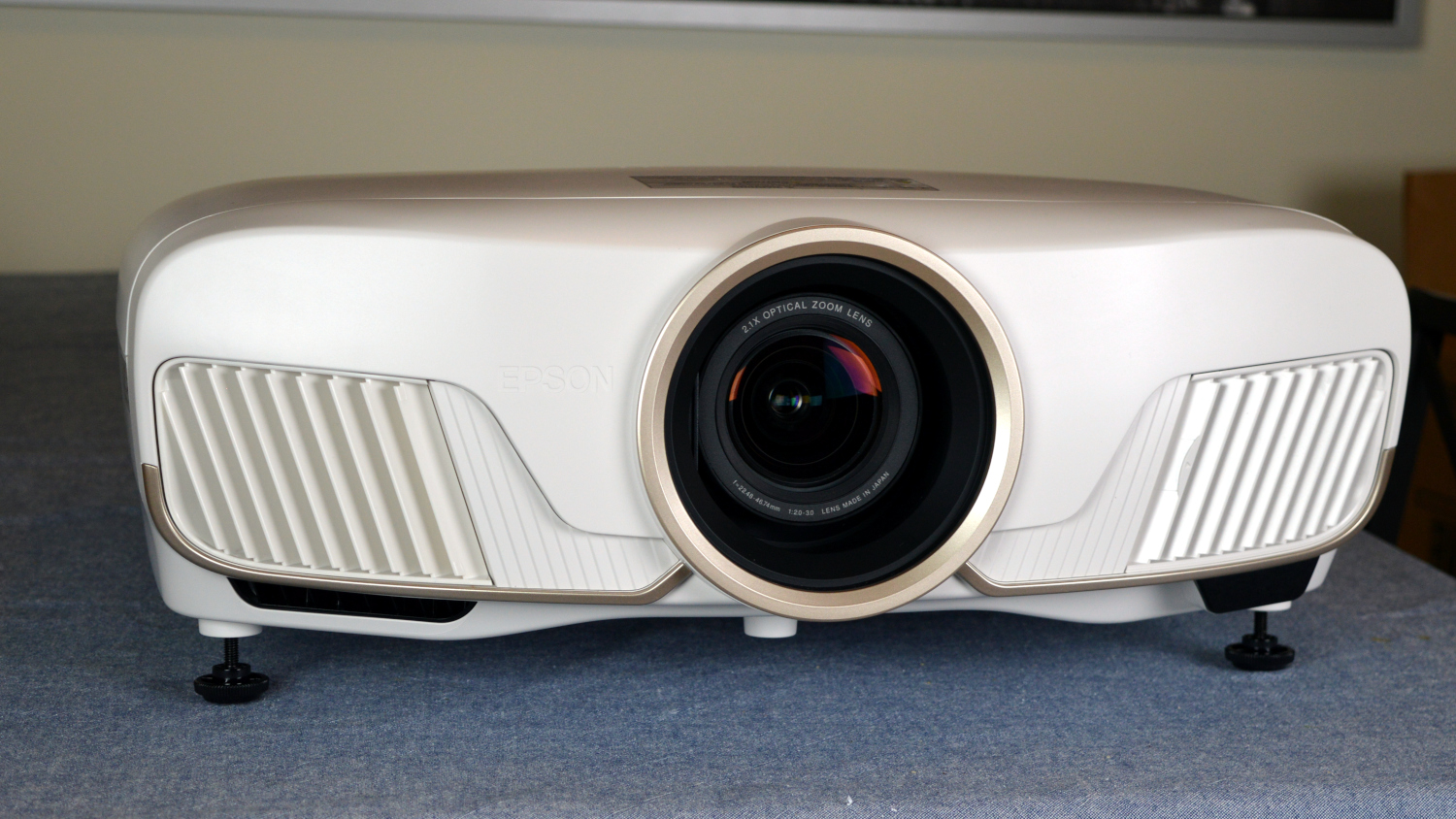
In the middle of the front of the device, you’ll find the lens for the projector, with grills on either side of that lens for cooling. On the left of the projector, you’ll find a power button and source control, along with controls to control the software of the device, in case you happen to not have the remote.
On the back of the projector is where you’ll get your inputs and outputs, and there’s a solid selection of them. For starters, there are two HDMI 2.0 inputs, along with a USB-A port and an Ethernet port for a more stable internet connection. There’s also a VGA port for connecting a PC and an RS-232C port, which can be used to connect the projector to an existing home theater control system, like Control4.
The remote itself isn’t badly designed either, but like the projector, it’s pretty big. On it you’ll obviously find controls for setting the input source, along with playback controls and volume controls. You’ll also get controls to tweak the picture settings, which is always handy. The buttons on the remote are backlit, which is a nice feature to have in case you plan on using the device in a dark environment.
Once you’ve taken your projector out of the box, it’s time to set it up.
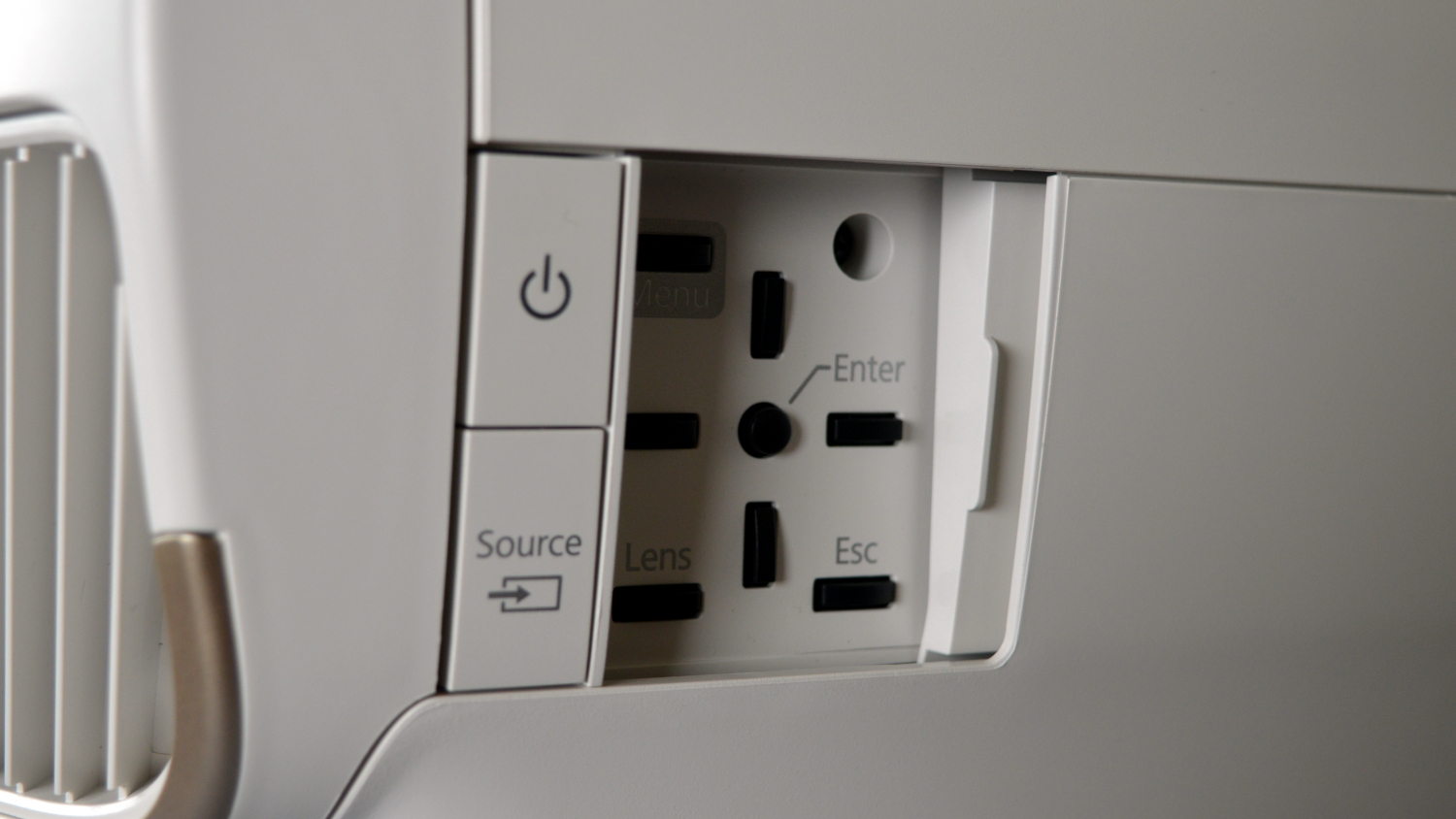
Setup
Setting up the Epson Home Cinema 5050UB is easy - at least when it comes to software. Physically setting it up may prove more challenging, but that will depend on how you want your home theater to look, and if you want a ceiling mounted setup or don't mind placing it on a large table.
For us, it was a matter of placing the projector on a sturdy table and connecting our sources to the inputs. If you spring for the more expensive 5050UBe, you can set up your sources wirelessly too, through the use of the included transmitter.
That said, however, for many rooms, the projector may prove to be a little much: The device supports an image of up to multiple hundreds of inches, which is far bigger than any TV you’re probably used to, and bigger than most projectors in this class.
If the idea of lining up an image perfectly with your wall or screen sounds daunting, don't worry, most of the setup can be done on the remote. In fact, the projector's mechanical lens system supports up to an impressive 96% vertical and 47% horizontal lens shift, giving you a lot of freedom in terms of picture placement.
Once you’ve set up the basic image and placement of the projector, there are a number of other parameters to go over: You can control pretty much everything you would expect, including brightness, contrast, saturation and so on. We'd offer some tips here, but the best settings will ultimately depend on your environment and preferences.
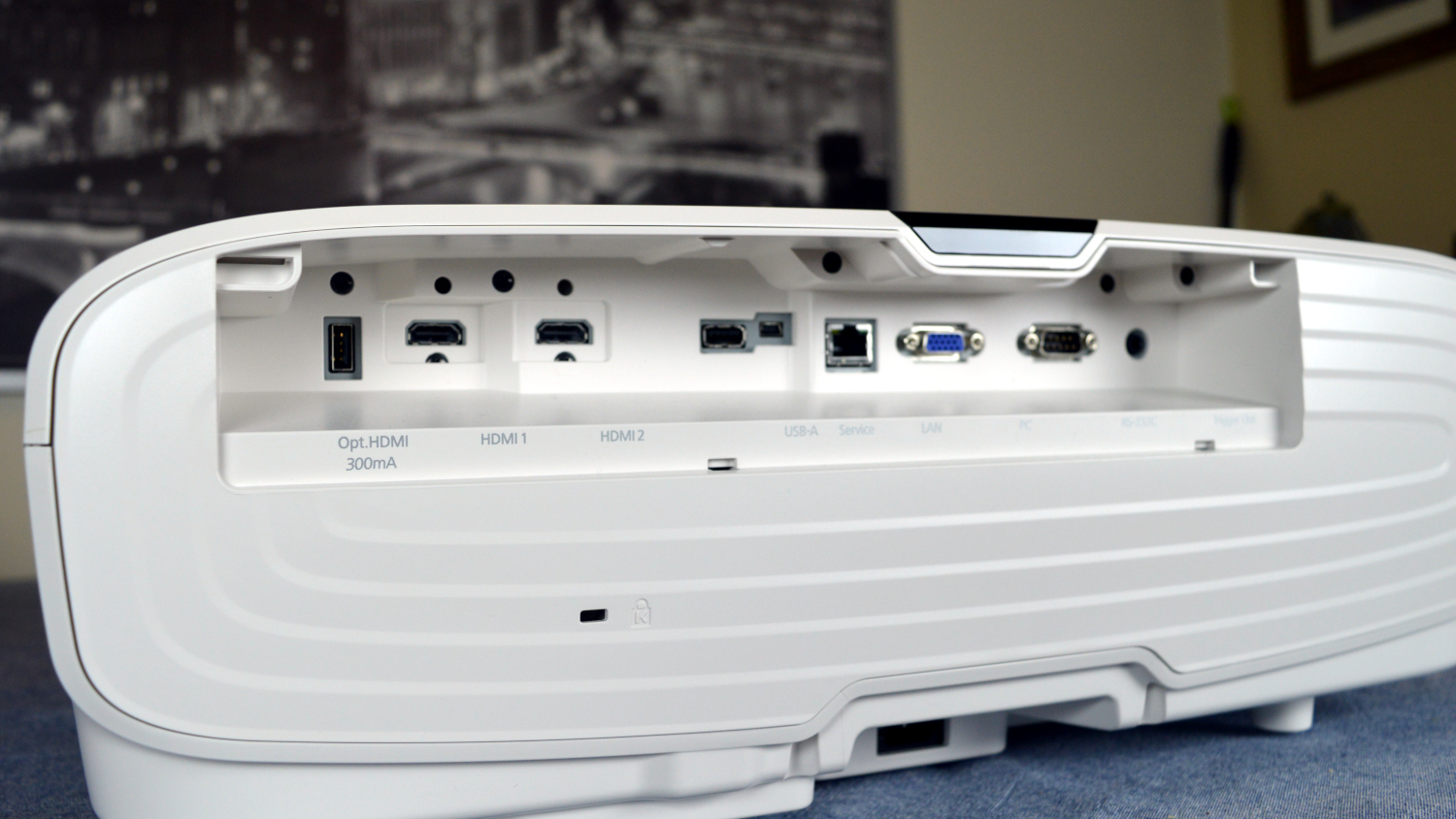
Performance
Ultimately, when you’re paying this much for a projector there’s one thing that matters more than anything else, and that's how the projector performs.
Well folks, this projector may not have a native 4K resolution, but in the end it simply doesn’t matter - the Epson Home Cinema 5050UB is a beast, and images from it look incredible.
Like other TVs and projectors in this class, motion smoothing is here - but it’s an option that you don’t have to use if you don’t want to. Frame interpolation essentially inserts frames in between the existing frames to help the movement on the screen look a little smoother. On this projector, you can set it to “Low,” “Normal,” or “High.” If you like motion smoothing at all, though there’s a case to be made for not using it at all, then you’ll probably want to stick with Low or Medium. High looked a little too smooth to our tastes to where things just didn’t seem natural, but your miles may vary.
Unfortunately, though, there’s a list of conditions that have to be met for frame interpolation work. For example, the “4K enhancement” setting has to be off - meaning you can’t actually enjoy a 4K resolution and motion smoothing at the same time. But this projector supports 4K at 60Hz sources - unlike previous projectors in the Home Cinema lineup - so at least it has that going for it.
The projector offers a range of color modes to choose from, including Dynamic, Bright Cinema, Natural, Cinema, Black & White Cinema, and Digital Cinema. There’s also two 3D modes including 3D Dynamic and 3D Cinema.
We actually quite liked all of the modes on offer, and you may want to switch between them for different situations. Though for general viewing Dynamic and Bright Cinema looked the best to our eyes. It’s worth taking a look at the different mods and finding the ones that you prefer, however.
Part of the reason colors are so deep and vivid is that the projector offers improved HDR support compared to previous Epson projectors. In fact, the device boasts real-time HDR curve adjustment, meaning you can tune HDR performance and see the changes you’re making as you go. On the remote, there’s a HDR button to access HDR settings, which is a nice touch. We like the fact that there are those extra settings, and while most people probably won’t want to or need to access them, the image nerds among us will love the control.
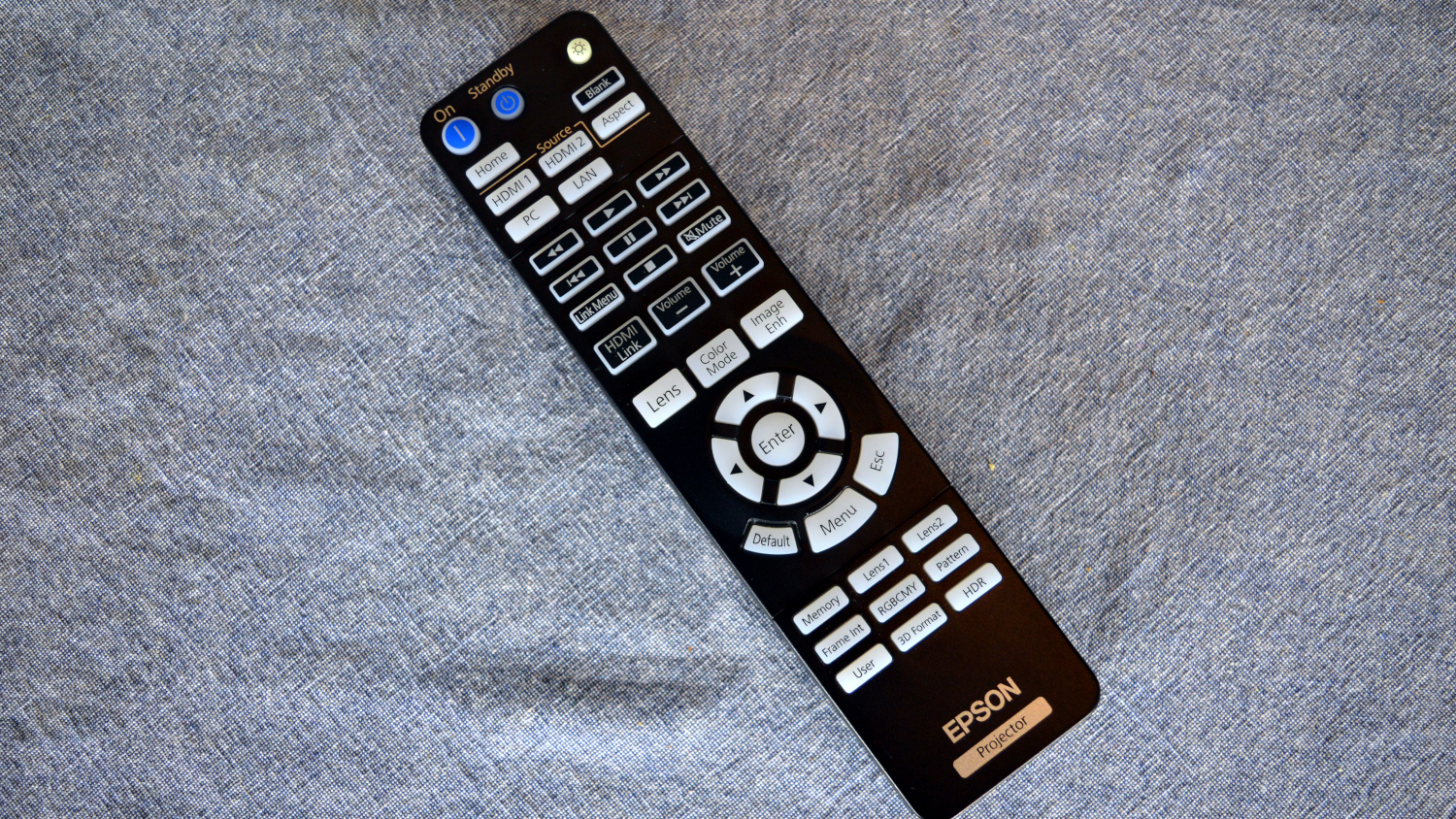
With frame interpolation off and 4K enhancement on, the Epson Home Cinema 5050UB projector looks great. On the new Netflix documentary series One Planet, you’ll enjoy nature’s details more beautifully than you ever have before (except, of course, going out into nature yourself). Colors remain vivid and deep, with plenty of contrast to go around - especially if you’re watching in a relatively dark environment.
One of the things that surprised us the most was that you don’t necessarily need a dark environment to enjoy a decent picture: The brighter your environment is, the worse your image quality will be - that’s just how projectors work - but this particular projector is able to pump out enough light (2,600 lumens to be exact) to ensure that colors remain vivid and deep even with some ambient light. Watching with the room’s lights on, we still loved every minute - though opening the curtains and letting outside light in was a little much.
Of course, there’s one thing that makes projectors in general tougher to deal with than TVs and that’s noise - it takes fans to keep a projector cool while it’s operating. The good news is that we found the fans in this projector to be relatively quiet, especially in eco mode. In other modes it was a bit distracting, but it's something that could be drowned out with a decent speaker setup.
Final verdict
Is the Epson Home Cinema 5050UB the best projector in its class? Well, it’s a serious contender, but its price tag makes other, cheaper options look like much better value. The Epson Home Cinema 5040, for example, offers many of the same features as the 5050UB, including the 4K enhancement tech, plus it’s significantly cheaper.
What makes this projector better? Well, it can get a little brighter, offers slightly more powerful processors, has better HDR performance than previous projectors, and so on. Many won’t care about those differences, and those people will be happy with more affordable projectors in the Epson Home Cinema lineup. If, however, you only want the best and can appreciate what extra light can do in terms of vivid colors and better HDR performance, then the Epson Home Cinema 5050UB is a great projector that’s well worth buying. It’s a pricey projector, to be sure, but at the same time you could spend a whole lot more for a great projector for your home theater.
- Don't miss our round-up of the best projectors in 2019
Christian is a writer who's covered technology for many years, for sites including Tom's Guide, Android Central, iMore, CNN, Business Insider and BGR, as well as TechRadar.
